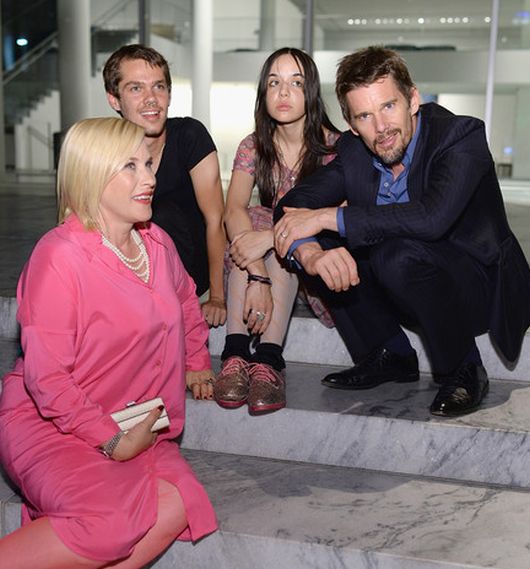 FILM
FILM In Which Boyhood Keeps Us In A State Of Perpetual Anxiety
 Monday, July 28, 2014 at 11:43AM
Monday, July 28, 2014 at 11:43AM 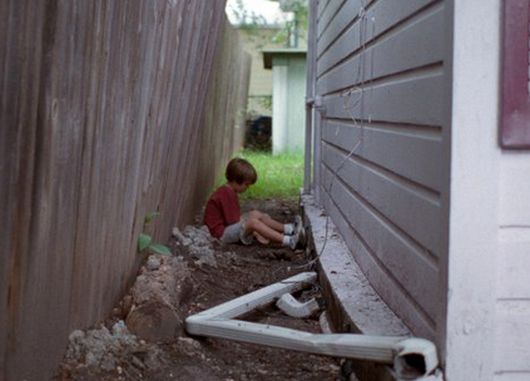
Familiar Story
by SARI EDELSTEIN
Boyhood
dir. Richard Linklater
165 minutes
 Critics are swooning over Richard Linklater’s new film Boyhood, most notably because it took twelve years to film – see, for instance, Dana Stevens' rave. Linklater has claimed it was the longest shoot in film history. But this cinematic accomplishment does not serve a particularly novel take on adolescence or aging; instead, it offers a familiar story of coming-of-age as masculine disenchantment and growing older as decline.
Critics are swooning over Richard Linklater’s new film Boyhood, most notably because it took twelve years to film – see, for instance, Dana Stevens' rave. Linklater has claimed it was the longest shoot in film history. But this cinematic accomplishment does not serve a particularly novel take on adolescence or aging; instead, it offers a familiar story of coming-of-age as masculine disenchantment and growing older as decline.
Nominally about the boyhood of its protagonist, Mason Evans (Ellar Coltrane), Boyhood is actually about the effects of time more broadly, as it portrays the same actors over the course of twelve years. Thus, the film’s central subject is aging, and how years look. We see how twelve years register on the faces and bodies of the young actor as well as on the more familiar Ethan Hawke and Patricia Arquette, who play his parents.
The landscape of rural Texas – its canyons and vast expanses – affirm the power of time to change its subjects, to work deep ravines and crevasses into the earth. But while time renders the natural world ever more beautiful and mysterious, the film works hard to show that age has the opposite effect on people. According to this film, aging is not about progress or improvement, nor is it about the acquisition of wisdom. According to Boyhood, life involves nothing but a progressive winnowing away of idealism.
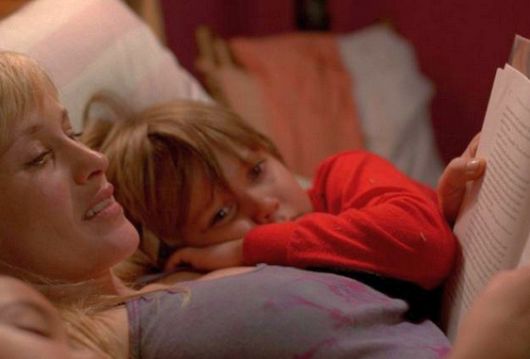
Though the hard-working mother of two, Olivia (Patricia Arquette), achieves some version of success (home ownership, graduate degree), she can’t find a decent husband or a modicum of financial stability. Moreover, the tenderness we witness with her children in the early scenes of the film dissolves into power struggles, nagging, and alienation.
Mason’s father, played by Ethan Hawke, is perhaps the only sympathetic man in the film, though he begins as a clichéd deadbeat dad. While he is absent for much of their childhood, he comes to desire true intimacy with his children. By contrast, Mason’s two stepfathers represent more conventional versions of “manhood," associated with alcoholism, violence, and emotional frigidity.
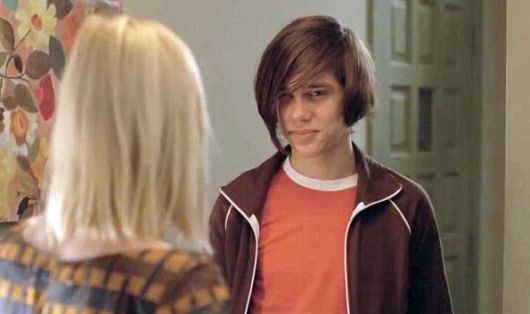
Boyhood dwells on the vapidity of traditional rites of passages; birthdays and graduations are rendered empty performances. When he turns fifteen, Mason is given a gun, a bible, and a suit and tie, the paraphernalia of the normative Southern man he is supposed to be. In one of the final scenes, his mother breaks down as her son leaves for college and sums up the film’s bleak view of aging when she semi-comically announces, “You know what’s next? My funeral!” Thus, far from celebration, rites of passage merely bring her closer to death. And Mason keeps viewers in a state of perpetual anxiety (avoiding car accidents, abuse, and injury by a hair’s breadth), as if to remind us that growing up is simply about not dying.
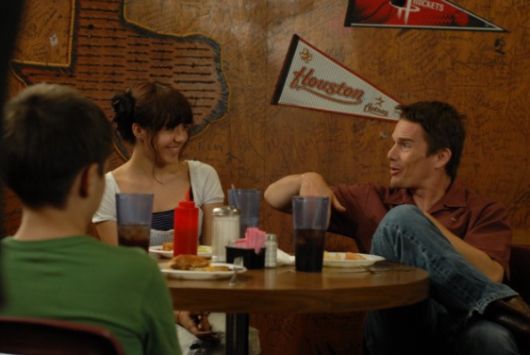
In this sense, Boyhood shares a sensibility with last summer’s sleeper coming-of-age film The Way, Way Back, which also rendered adulthood as an undesirable achievement. In that film, fourteen-year-old Duncan begrudgingly endures a summer vacation with his mother and her hostile boyfriend, Trent, at a beach house in a small New England town. To escape the claustrophobic climate of the beach cottage, Duncan finds refuge at a nearby waterpark whose loopy slides and swimming pools signal the film’s refusal to adhere to conventional ideas about linear development.
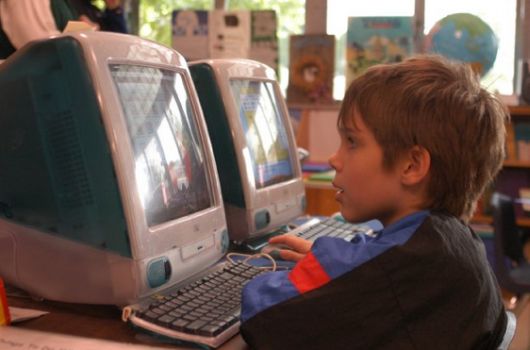
Where Boyhood portrays coming-of-age as disillusionment and fails to represent any alternative to the adulthood of the prior generation, The Way, Way Back challenges reigning ideas about how individuals experience the effects of time. In the film’s final scene, Duncan’s mother joins him in the “way, way back” of the family’s wood-paneled station wage, aligning herself with her son and his “backwards” way of seeing the world.
The movie thus ends in the same place it began; Duncan has not outgrown this childish status but has come to embrace it, reclaiming the lowest position on the hierarchy as a badge of honor and a preferable perspective. The Way, Way Back reminds us that growing older does not require one to conform to a life course rooted in stages and in the gradual assumption of normative gender roles.

Boyhood, on the contrary, is about the relentless stampede of years and their predictable and grim effects on individuals. Like the HBO television series Girls, Linklater’s movie makes a claim to universality with its title. But this boyhood is specific; it is a white, middle-class, Texan boyhood. In one scene, Olivia casually suggests to a young Latino landscaper that he go to college. To her surprise, the nameless character crosses her path years later at a restaurant; he has attended college and tells her, “You changed my life.” This surprising scene, strangely sentimental in the context of this cynical film, hints at the other boyhoods that might be imagined. Where Mason refuses to embrace the capitalist dictum that his parents, teachers, and supervisors relentlessly proffer, this young man seems to have wholly embraced the promise of the American dream. In a way, then, the movie acknowledges the specificity of version of boyhood it presents and implies that perhaps Mason’s anomie is itself a privilege.
Sari Edelstein is a contributor to This Recording. She teaches American literature at the University of Massachusetts-Boston. She doesn't tumbl or tweet. This is her first appearance in these pages.
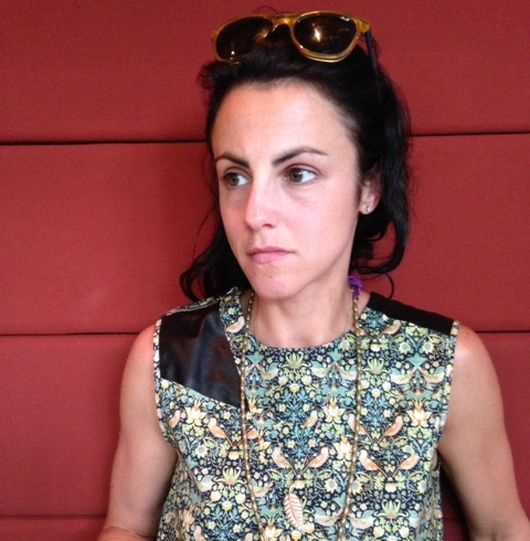
"Ghostly" - Home Video (mp3)
"Calm Down" - Home Video (mp3)
